Political Science Ncert Notes (6-12) contains – Edition = 2023-24, Pages = 187, Format = Pdf, How to Buy/Download Notes, Buy All in One combo and Get More Discount & Benefits = Click Here
|| Content of Political Science Ncert Notes ||
Class: 6 – Social and Political Life – I
- Chapter: 1 – Understanding Diversity
- Chapter: 2 – Diversity and Discrimination
- Chapter: 3 – What is Government
- Chapter: 4 – Panchayati Raj
- Chapter: 5 – Rural Administration
- Chapter: 6 – Urban Administration
- Chapter: 7 – Rural Livelihoods
- Chapter: 8 – Urban Livelihoods
Class: 7 – Social and Political Life – II
- Chapter: 1 – On Equality
- Chapter: 2 – Role of the Government in Health
- Chapter: 3 – How the State Government Works
- Chapter: 4 – Growing up as Boys and Girls
- Chapter: 5 – Women Change the World
- Chapter: 6 – Understanding Media
- Chapter: 7 – Markets Around Us
- Chapter: 8 – A Shirt in the Market
Class: 8 – Social and Political Life – III
- Chapter: 1 – The Indian Constitution
- Chapter: 2 – Understanding Secularism
- Chapter: 3 – Parliament and the MAking of Laws
- Chapter: 4 – Judiciary
- Chapter: 5 – Understanding Marginalisation
- Chapter: 6 – Confronting Marginalisation
- Chapter: 7 – Public Facilities
- Chapter: 8 – Law And Social Justice
Class: 9 – Democratic Politics – I
- Chapter: 1 – What is Democracy? Why Democracy?
- Chapter: 2 – Constitutional Design
- Chapter: 3 – Electoral Politics
- Chapter: 4 – Working of Institutions
- Chapter: 5 – Democratic Rights
Class: 10 – Democratic Politics – II
- Chapter: 1 – Power Sharing
- Chapter: 2 – Federalism
- Chapter: 3 – Gender, Religion, and Caste
- Chapter: 4 – Political Parties
- Chapter: 5 – Outcomes of Democracy
Class: 11 – Political Theory
- Chapter: 1 – Political Theory: An Introduction
- Chapter: 2 – Freedom
- Chapter: 3 – Equality
- Chapter: 4 – Social Justice
- Chapter: 5 – Rights
- Chapter: 6 – Citizenship
- Chapter: 7 – Nationalism
- Chapter: 8 – Secularism
Class: 11 – Indian Constitution at Work
- Chapter: 1 – Constitution: Why and How
- Chapter: 2 – Rights in The Indian Constitution
- Chapter: 3 – Election and Representation
- Chapter: 4 – Executive
- Chapter: 5 – Legislature
- Chapter: 6 – Judiciary
- Chapter: 7 – Federalism
- Chapter: 8 – Local Governments
- Chapter: 9 – Constitution as a Living Document
- Chapter: 10 – The Philosophy of the Constitution
Class: 12 – Contemporary World Politics
- Chapter: 1 – The End of Bipolarity
- Chapter: 2 – Contemporary Centres of Power
- Chapter: 3 – Contemporary South Asia
- Chapter: 4 – International Organisations
- Chapter: 5 – Security In the Contemporary World
- Chapter: 6 – Environment and Natural Resources
- Chapter: 7 – Globalisation
Class: 12 – Politics in India Since Independence
- Chapter: 1 – Challenges of Nation Building
- Chapter: 2 – Era of One-Party Dominance
- Chapter: 3 – Politics of Planned Development
- Chapter: 4 – India’s External Relations
- Chapter: 5 – Challenges to and Restoration of the Congress System
- Chapter: 6 – Crisis of the Democratic Order
- Chapter: 7 – Regional Aspirations
- Chapter: 8 – Recent Developments in Indian Politics
|| Class: 6 – Social and Political Life – I | Political Science Ncert Notes ||
Chapter: 1 – Understanding Diversity
- Diversity in India
- Unity in Diversity
Chapter: 2 – Diversity and Discrimination
- Difference and Prejudice
- Creating Stereotypes
- Inequality and Discrimination
- On Being Discriminated Against
- Striving For Equality
Chapter: 3 – What Is Government
- Levels of Government
- Laws and the Government
- Types of Government
- Democratic Governments
Chapter: 4 – Panchayati Raj
- Gram Sabha
- The Gram Panchayat
- Three Levels of Panchayats
Chapter: 5 – Rural Administration
- Area of the Police Station
- Maintenance of Land Records
- A New Law
Chapter: 6 – Urban Administration
- The Ward Councillor and Administrative Staff
- A Community Protest
Chapter: 7 – Rural Livelihoods
- Different Occupations
- Seasonal Unemployment
- Main Problems Faced By Indian Farmers
- Agricultural Labourers and Farmers in India
- Rural Livelihoods
Chapter: 8 – Urban Livelihoods
- Working on the Street
- In The Factory-Workshop Area
- Who Are Casual Workers?
- Why Do People Prefer Organised Sectors?
|| Class: 7 – Social and Political Life – II | Political Science Ncert Notes ||
Chapter: 1 – On Equality
- Equal Right to Vote
- Other Kinds of Equality
- Recognizing Dignity
- Equality in Indian Democracy
- Issues of Equality in Other Democracies
- Challenge of Democracy
Chapter: 2 – Role of the Government in Health
- What Is Health
- Healthcare in India
- Public Health Services
- Private Health Facilities
- Healthcare and Equality
- What Can Be Done?
Chapter: 3 – How the State Government Works
- Who Is an MLA
- A Debate in the Legislative Assembly
- Working of the Government
Chapter: 4 – Growing Up As Boys and Girls
- Valuing Housework
- Women’s Work and Equality
Chapter: 5 – Women Change the World
- Learning for Change
- Schooling and Education Today
- Women’s Movement
Chapter: 6 – Understanding Media
- Media and Money
- Media and Democracy
- Setting Agendas
Chapter: 7 – Markets Around Us
Chapter: 8 – A Shirt in the Market
|| Class: 8 – Social and Political Life – III | Political Science Ncert Notes||
Chapter: 1 – The Indian Constitution
- Why Does A Country Need A Constitution?
- The Indian Constitution: Key Features
Chapter: 2 – Understanding Secularism
- What Is Secularism?
- Why Is It Important to Separate Religion From The State?
- What Is Indian Secularism?
Chapter: 3 – Parliament and the Making of Laws
- Why Should People Decide?
- People and Their Representatives
- The Role of the Parliament
- Who Are The People In Parliament?
Chapter: 4 – Judiciary
- What Is The Role Of The Judiciary?
- What Is An Independent Judiciary?
- What Is The Structure Of Courts In India?
- What Are The Different Branches Of The Legal System?
- Does Everyone Have Access To The Courts?
Chapter: 5 – Understanding Marginalisation
- Who are Adivasis?
- Adivasis and Stereotyping
- Adivasis and Development
- Minorities and Marginalisation
- Muslims and Marginalisation
- Conclusion
Chapter: 6 – Confronting Marginalisation
- Invoking Fundamental Rights
- Laws for the Marginalised
- Conclusion
Chapter: 7 – Public Facilities
- Water as Part of the Fundamental Right to Life
- Public Facilities
- The Government’s Role
- Water Supply: Is It Available To All?
- In Search Of Alternatives
- Conclusion
Chapter: 8- Law and Social Justice
- What Is A Worker’s Worth?
- Enforcement of Safety Laws
- New Laws to Protect the Environment
- Conclusion
|| Class: 9 – Democratic Politics – I | Political Science Ncert Notes ||
Chapter: 1 – What Is Democracy? Why Democracy?
- What Is Democracy?
- Features of Democracy
- Why Democracy?
- Broader Meanings of Democracy
Chapter: 2 – Constitutional Design
- Democratic Constitution in South Africa
- Why Do We Need A Constitution?
- Making Of the Indian Constitution
- Guiding Values of the Indian Constitution
Chapter: 3 – Electoral Politics
- Why Elections
- What Is Our System Of Elections?
- What Makes Elections in India Democratic?
Chapter: 4 – Working Of Institutions
- How Is A Major Policy Decision Taken?
- Parliament
- The Judiciary
Chapter: 5 – Democratic Rights
- Rights in a Democracy
- Rights in the Indian Constitution
- Expanding Scope of Rights
|| Class: 10 – Democratic Politics – II | Political Science Ncert Notes||
Chapter: 1 – Power Sharing
- Belgium and Sri Lanka
- Majoritarianism in Sri Lanka
- Accommodation in Belgium
- Forms of Power-Sharing
Chapter: 2 – Federalism
- What Is Federalism?
- What Makes India A Federal Country?
- How Is Federalism Practised?
- Decentralization in India
Chapter: 3 – Gender, Religion, and Caste
- Gender and Politics
- Caste and Politics
Chapter: 4 – Political Parties
- Why Do We Need Political Parties?
- How Many Parties Should We Have?
- National Political Parties
- State Parties
- Challenges to Political Parties
- How Can Parties Be Reformed?
Chapter: 5 – Outcomes of Democracy
- How Do We Assess Democracy’s Outcomes?
- Accountable, Responsive, and Legitimate Government
- Economic Growth and Development
- Reduction of Inequality and Poverty
- Accommodation of Social Diversity
- Dignity and Freedom of the Citizens
|| Class: 11 – Political Theory | Political Science Ncert Notes||
Chapter: 1 – Political Theory: An Introduction
- What Is Politics?
- What Do We Study In Political Theory?
- Putting Political Theory into Practice
- Why Should We Study Political Theory?
Chapter: 2 – Freedom
- The Ideal of Freedom
- What Is Freedom
- ‘Negative and Positive Liberty
Chapter: 3 – Equality
- Why Does Equality Matter
- What Is Equality
- The Three Dimensions of Equality
Chapter: 4 – Social Justice
- What Is Justice
- Just Distribution
- John Rawl’s Theory of Justice
- Pressing Social Justice
Chapter: 5 – Rights
- What Is Right
- Where Do Rights Come From
- Legal Rights and the State
- Kinds of Right
- Rights and Responsibilities
Chapter: 6 – Citizenship
- Introduction
- Full and Equal Membership
- Equal Rights
- Citizen and Nation
- Global Citizenship
Chapter: 7 – Nationalism
- Introduction
- Nation and Nationalism
- National Self-Determination
- National and Pluralism
Chapter: 8 – Secularism
- What Is Secularism?
- Secular State
- The Western Model of Secularism
- The Indian Model of Secularism
- Criticisms of Indian Secularism
|| Class: 11 – Indian Constitution at Work | Political Science Ncert Notes ||
Chapter: 1 – Constitution: Why and How
- Why Do We Need A Constitution?
- The Authority of a Constitution
- Composition of the Constituent Assembly
- Conclusion
Chapter: 2 – Rights in the Indian Constitution
- Bill Of Rights
- Fundamental Rights in the Indian Constitution
- Right to Equality
- Right to Freedom
- Right to Life and Personal Liberty
- Right against Exploitation
- Right to Freedom of Religion
- Cultural and Educational Rights
- Right to Constitutional Remedies
- National Human Rights Commission (NHRC)
- Directive Principles of State Policy
- Conclusion
Chapter: 3 – Election and Representation
- Elections and Democracy
- Election System in India
- Proportional Representation
- How Does PR Work In Rajya Sabha Elections?
- Reservation of Constituencies
- Free and Fair Elections
- Electoral Reforms
- Conclusion
Chapter: 4 – Executive
- What Is An Executive?
- What Are The Different Types Of Executive?
- Parliamentary Executive in India
- Discretionary Powers of the President
- Prime Minister and Council Of Ministers
- Size of the Council Of Ministers
- Permanent Executive: Bureaucracy
- Conclusion
Chapter: 5 – Legislature
- Why Do We Need A Parliament?
- Why Do We Need Two Houses Of Parliament?
- States with the Second Chamber of Legislature
- Rajya Sabha
- Lok Sabha
- What Does The Parliament Do?
- Powers of Rajya Sabha
- Special Powers of Rajya Sabha
- A Money Bill Shall Not Be Introduced In the Council of States
- Instruments of Parliamentary Control
- What Does The Committees of Parliament Do?
- How Does The Parliament Regulate Itself?
- Conclusion
Chapter: 6 – Judiciary
- Why Do We Need An Independent Judiciary?
- Structure of the Judiciary
- Jurisdiction of Supreme Court
- Judicial Activism
- Judiciary and Rights
- Judiciary and Parliament
- Conclusion
Chapter: 7 – Federalism
- What Is Federalism?
- Federalism in the Indian Constitution
- Division of Powers
- Federalism with a Strong Central Government
- Conflicts in India’s Federal System
- Special Provisions
- Conclusion
Chapter: 8 – Local Governments
- Why Local Governments?
- Growth of Local Government in India
- 73rd And 74th Amendments
- 73rd Amendment
- 74th Amendment
- Conclusion
Chapter: 9 – Constitution as a Living Document
- Are Constitutions Static?
- How to Amend the Constitution?
- Why Have There Been So Many Amendments?
- Basic Structure and Evolution of the Constitution
- Constitution as a Living Document
- Conclusion
Chapter: 10 – The Philosophy of the Constitution
|| Class: 12 – Contemporary World Politics | Political Science Ncert Notes ||
Chapter: 1 – The End of Bipolarity
- What Was the Soviet System?
- Gorbachev and Disintegration of Soviet Union: Causes and Consequences
- Shock Therapy and Its Consequences
- Tensions and Conflicts
- India’s Relations with Post-Communist Countries
Chapter: 2- Contemporary Centres of Power
- European Union
- Association of South East Asian Nations (ASEAN)
- The Rise of the Chinese Economy
- India’s Relations with China
Chapter: 3 – Contemporary South Asia
- What Is South Asia
- The Military and Democracy in Pakistan and Bangladesh
- Monarchy and Democracy in Nepal
- Ethnic Conflict and Democracy in Sri Lanka
- Conflicts between India and Pakistan
- India and Its Relations with Neighbours
- Peace and Co-Operation in South Asia
Chapter: 4 – International Organisations
- Why International Organisations
- Evolution of the UN
- Reform of Structures and Processes
- Jurisdiction of the UN
- India and the UN Reforms
- The UN in A Unipolar World
Chapter: 5 – Security in the Contemporary World
- What Is Security
- Traditional Notions: External
- Traditional Notions: Internal
- Non-Traditional Notions
- Different Sources of Threats and Co-Operative Security
- India’s Security Strategy
Chapter: 6 – Environment and Natural Resources
- Environmental Norms and Global Commons
- India’s Stand on Environmental Issues
- Resource Geopolitics, Indigenous People and Their Rights
Chapter: 7 – Globalisation
- Globalization – Causes and Consequences
- India and Globalisation
|| Class: 12 – Politics in India since Independence | Political Science Ncert Notes ||
Chapter: 1 – Challenges of Nation Building
- Challenges of Nation-Building
- Legacy of Partition
- Organization and Reorganisation of States
Chapter: 2 – Era of One-Party Dominance
- Building Democracy
- The dominance of National and State
- Major Opposition Parties and Congress Coalition
Chapter: 3 – Politics of Planned Development
- Five-Year Plans and the Developments
- Green Revolution
Chapter: 4 – India’s External Relations
- Nehru’s Foreign Policy
- The Wars with the Neighbours
- Recent Developments in World Politics
Chapter: 5 – Challenges To and Restoration of the Congress System
- Political Succession after Nehru
- Fourth General Elections of 1967 and Split in Congress
- Major Opposition Parties and Congress Coalition
Chapter: 6 – Crisis of the Democratic Order
- Background to Emergency
- Declaration of Emergency
- Politics after the National Emergency
Chapter: 7 – Regional Aspirations
- Rise of Regional Parties
- Punjab
- Kashmir
- North-East
Chapter: 8 – Recent Developments in Indian Politics
- Political Developments
- Coalition Governments
- The emergence of a New Consensus
|| Brief Introduction of Political Science Ncert Notes (6-12) ||
NCERT (National Council of Educational Research and Training) textbooks are foundational resources for students in India, covering various subjects including Political Science from grades 6 to 12. Here’s an overview of what each grade typically covers:
- Class 6:
- The basics of Civics and Political Science are introduced.
- Topics may include understanding diversity, governance, and local government.
- Class 7:
- Students delve deeper into political concepts and governance structures.
- They may learn about different forms of government, rights, and democracy.
- Class 8:
- More complex political concepts are introduced.
- Topics may include understanding the Indian Constitution, judiciary, and understanding the political system.
- Class 9:
- Students typically learn about broader political concepts and historical contexts.
- They may study topics such as the French Revolution, democracy, and electoral politics.
- Class 10:
- A focus on global political issues and India’s role in the world may be introduced.
- Students might study topics such as power-sharing, federalism, and democracy.
- Class 11:
- Political Science at this level often delves into more specialized areas.
- Students may study Indian Constitution at length, political theory, and comparative politics.
- Class 12:
- The curriculum may include advanced topics in political science.
- Students might learn about international relations, political ideologies, and contemporary global issues.
These Political Science Ncert 6 to 12 Pdf textbooks are designed to provide a comprehensive understanding of political science concepts, governance structures, and political systems both in India and globally. They serve as foundational resources for students preparing for higher education in political science or related fields.
|| T0 Buy Ncert Notes Combo Offer ||
- An Introduction to Indian Art Ncert Notes
- Ancient History Tamilnadu Board Notes
- Ancient India Old Ncert Notes
- Economy Ncert (9-12) Notes
- Geography Ncert Class (6-12) Notes
- Medieval History Tamilnadu Board Ncert Notes
- Medieval History Old Ncert Notes
- Modern History Old Ncert Notes
- Political Science Ncert Notes Class (6-12)
- Science Ncert Notes class (6-12)
- History Ncert Notes class (6-12)
- The Story of Civilization Ncert Notes by Arjun Dev
- Sociology Ncert Class (11-12) Notes
To Buy only Ncert Notes Combo – Click Here
|| T0 Buy All In One Combo Offer Notes ||
- For Year = 2024
- Formats = Pdfs
- Language = English
- Get extra 10% off, use code – Allinone10
- Ncert Notes = An Introduction to Indian Art | Ancient History Tamilnadu Board | Ancient India Old Ncert | Economy Ncert (9-12) | Geography Ncert Class (6-12) | Medieval History Tamilnadu Board | Medieval History Old Ncert | Modern History Old Ncert | Political Science Ncert Class (6-12) | Science Ncert class (6-12) | History Ncert class (6-12) | The Story of Civilization Ncert by Arjun Dev | Sociology Ncert class (11-12) |.
- Mains Notes = Art and Culture Nitin Singhania | GC Leong Latest Edition | Environment Shankar Ias | Ethics Lexicon | Indian Polity M.Laxmikanth | Indian Society Topic Wise |Internal Security Ashok Kumar IPS | Modern History Spectrum | Science and Tech Ravi P Agrahari | Indian Economy Ramesh Singh |.
- Ghatna Chakra Prelims Pointer = Environment | General Science | Geography | History | Indian Polity & Governance |Economy |.
- Extra Addon = 2nd ARC Reports Notes | How To Plan Your Study | How to Top UPSC: Strategies for Effective Preparation | Quotation Book | Ultimate Guide to Master Answer Writing: Techniques for Brilliance | UPSC Syllabus and How to Cover it Efficiently |.
- Ncert Edition = 2023-24
- Pointer Edition = 2023
- Give BoostUP in Your = UPSC and State PCS Preparation
- Get free updated notes under = 1 Year
- How to Buy/Download Notes – Click Here
- How to get the Updated Notes – Click Here
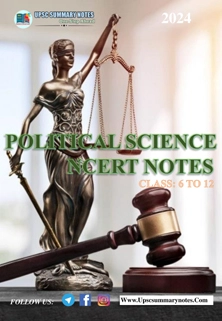
![1 Political Science Ncert Notes (6-12) For UPSC 2024 [PDF]](https://upscsummarynotes.com/wp-content/uploads/2023/06/1-9.webp)
![2 Political Science Ncert Notes (6-12) For UPSC 2024 [PDF]](https://upscsummarynotes.com/wp-content/uploads/2023/06/2-9.webp)























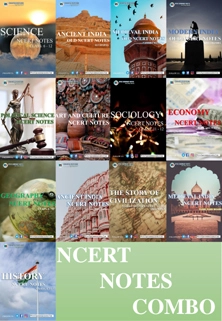
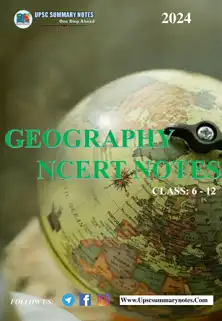
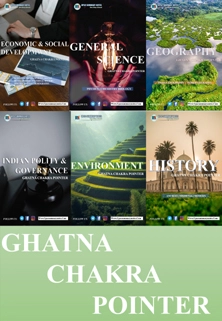
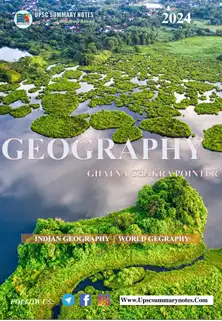
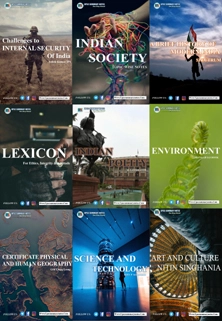
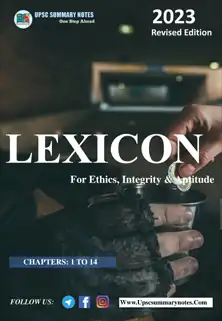

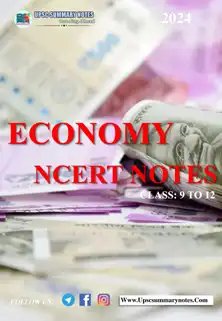
Rekha Singh –
Worth money and time spent.
Amit Karsel –
Good notes and really helpfully to be prepared for any exam.
Jaypal Singh –
Recommended 👍
Debanjan Paul –
Content of the Notes is definitely helpful. No two thoughts about it.